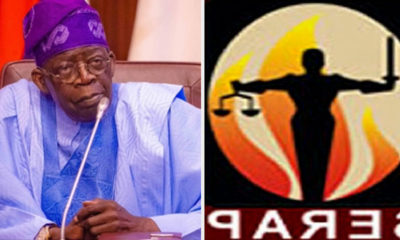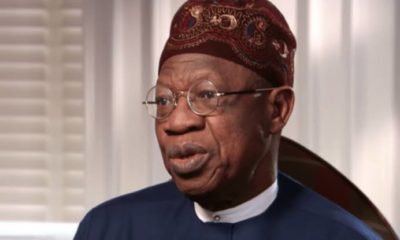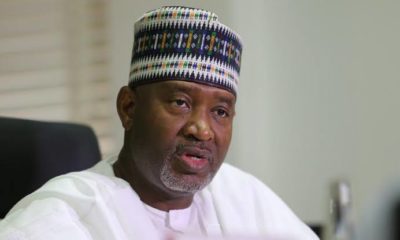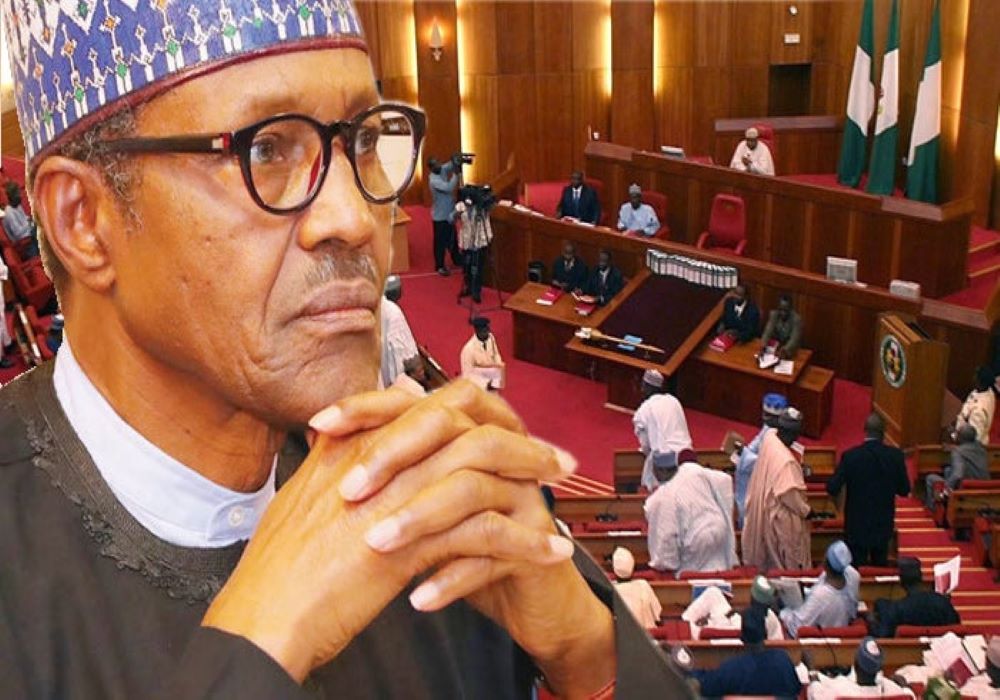Politics
Court Orders Lai Mohammed To Disclose Agreement Between FG And X
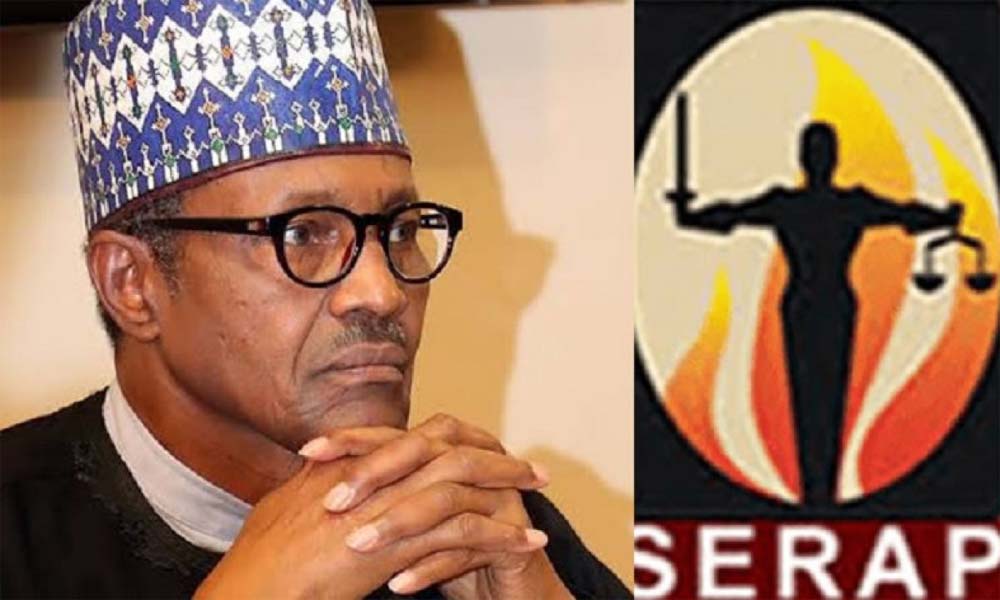
In a landmark judgement, a Federal High Court sitting in Lagos, has ordered Alh Lai Mohammed, former Minister of Information and Culture and the ministry of information to disclose the details of the agreement between the Federal Government and X, formerly Twitter, to assess whether the agreement complies with the exercise of Nigerians’ human rights online.
The judgment was delivered in May 2024 by Hon. Justice Nnamdi Okwy Dimgba following a Freedom of Information suit number: FHC/L/CS/238/2022, brought by the Socio-Economic Rights and Accountability Project (SERAP). The certified true copy of the judgment was obtained last Friday.
In his judgment, Justice Dimgba held that, “The former minister and the Ministry of Information are directed and compelled to provide a copy of the agreement between the Nigerian Government and Twitter to SERAP solely to ascertain its impact on the protection of fundamental human rights of Nigerians.”
According to Justice Dimgba, “Disclosing the details of the agreement between the Nigerian Government and Twitter is in the public interest and does not affect Twitter’s business interest as a third party. It is also not prejudicial to Nigeria’s sovereignty and national security.”
ALSO READ: SERAP Drags CBN On N100bn Dirty Notes, Other Missing Public Funds
Justice Dimgba also stated that, “The agreement between the Nigerian Government and Twitter must still be disclosed irrespective of the harm to Twitter if it would be in the public interest to make sure disclosure.”
Justice Dimgba dismissed the objections raised by the minister’s counsel and upheld the SERAP’s arguments.
Justice Dimgba further said, “The minister has failed to prove that the President has followed due process of law to designate Twitter as a Critical National Information Infrastructure upon the National Security Adviser’s recommendation and issued an Order in the Federal Gazette in that regard.”
Justice Dimgba’s judgment, dated 28 May, 2024, read in part: “Therefore, I hold that the disclosure of the Twitter agreement is not prejudicial to Nigeria’s sovereignty and national security or protected by the Official Secrets Act, as the minister has failed to prove the same.
“The first question that needs to be answered is how the need to disclose the agreement is outweighed by the importance of protecting the commercial interests of the third party, Twitter.
“The former minister has unequivocally argued that the disclosure could harm Twitter’s business interests in other jurisdictions, potentially with Twitter’s contractual negotiations.
“However, this defence is hypothetical and does not point to the specific business or contractual interests of Twitter that could be affected.
“It is my view that the disclosure of the details of the agreement as requested by SERAP will not interfere with the commercial interests and trade secrets of Twitter or lead to financial losses to it, as the former minister has failed to prove the same.
“Besides, Section 15(4) of the Freedom of Information Act envisages only real and not hypothetical financial loss or gain to or prejudice to, the competitive position of or interference with contractual or other negotiation of a third party like Twitter which could be affected by the disclosure.
“No evidence was placed before this Court pointing to the fact that Twitter has an agreement with another country as a precondition for its operation in such jurisdiction as obtainable in Nigeria.
“I am of the view that SERAP has a legitimate reason to wish to be availed of the agreement, which is to understand how the agreement affects them and other Nigerians as far as the protection of the human rights of Nigerians are concerned.
“Another point of controversy is whether the need to disclose the agreement for public interest is subject to the need to protect national sovereignty, as argued by the minister. National sovereignty depending on context is synonymous with national security.
“In most cases, the need for national security outweighs public interest, including protection of fundamental human rights. In this case, however, I am of the view that the reason for the refusal by the minister to disclose the agreement does not come within the need to protect national security and sovereignty.
“The minister’s defence is predicated on the Cybercrimes (Prohibition and Prevention Act) 2015 but has failed to prove how the Act relates to the Twitter agreement other than mentioning the same.
“More than merely linking SERAP’s request for the agreement to ‘critical national information infrastructure’ in section 3 of the Cybercrime (Prevention and Prohibition) Act, nothing more is said about its relevance and how it supports non-disclosure of the Twitter agreement.
“As such, the Cybercrime Act cannot apply to this case, and the protection that would have availed the minister is exempted. The minister also failed to prove how SERAP’s request for the agreement between the Nigerian Government and Twitter came within the protection of the Official Secrets Act.”
“SERAP’s lawsuit falls within the framework of Section 20 of the Freedom of Information Act.
“The minister is directed and compelled to provide a copy of the agreement requested to SERAP to enable the organization to study the same and come to an assessment of whether the agreement incorporates the provisions of Chapter IV of the Nigerian Constitution 1999 [as amended] on fundamental human rights and Nigeria’s international human rights obligations.
“It is clear that Twitter was from the beginning ostensibly suspended from operating in Nigeria’s cyberspace solely to protect the country’s corporate existence. The same ban was lifted after Twitter reached agreement with the Nigerian Government on some terms and conditions for its operation in Nigeria’s cyberspace and the former minister has not denied the existence of such an agreement.
“SERAP’s request does not involve disclosing personal information but relates to an agreement between the government and an international company that plays in the social media and public data space.
“By paragraph 13 of SERAP’s affidavit evidence, the organization requested a copy of the agreement to know whether it complies with Nigeria’s domestic fundamental human rights laws and international treaties to which the country is a state party.
“SERAP’s request seeks clarification on the scope and enforcement of the agreement to ensure it complies with fundamental human rights laws. For emphasis, matters of human rights enforcement fall within the ambit of public interest, as can be gleaned from a holistic understanding of Section 15(4) of the Freedom of Information Act.
“Thus, a public institution may grant a request for information on human rights protection grounds within Section 15(4) of the FOI Act, provided that the importance of granting the same outweighs the commercial interests of the third party.
“Particularly, Order 1 Rule 2 of the Fundamental Rights Enforcement Procedure Rules 2009 provides that public interest ‘includes the interest of Nigerian society or any segment of it in promoting human rights and advancing human rights law.
“Paragraph 3(1)(3)(d) of the Guidelines on the Implementation of the Freedom of Information Act Revised recognizes the following factor as constituting public interest ‘allowing individuals and companies to understand decisions made by authorities affecting their lives, and in some cases, assisting individuals in challenging those.
Reacting to the judgment, Femi Falana, said, “We commend Justice Dimgba for this landmark judgment. This is a judicial confirmation of Nigerians’ rights to freedom of expression, and access to information online. We call on the government of President Bola Tinubu to immediately implement the judgment.”
In the letter dated 13 July 2024 sent to President Tinubu on the judgment, and signed by SERAP deputy director, Kolawole Oluwadare, the organization said, “We urge you to demonstrate your expressed commitment to the rule of law by immediately obeying and respecting the judgment of the Court.”
The SERAP’s letter, read in part: “We urge you to direct the Ministry of Information and Culture and the office of the Attorney General of the Federation to immediately disclose the details of the Twitter agreement, as ordered by the court.
“The immediate enforcement and implementation of the judgment by your government will be a victory for the rule of law, freedom of expression including digital and data rights in Nigeria.
“SERAP trusts that you will see compliance with this judgment as a central aspect of the rule of law; an essential stepping stone to constructing a basic institutional framework for legality and constitutionality. We therefore look forward to your positive response and action on the judgment.”
The suit was filed against the former minister of information and culture. The suit followed the Nigerian Government’s statement on 13th January 2022 after lifting the suspension of Twitter operations in Nigeria, to the effect that, “Twitter has agreed to act with a respectful acknowledgement of Nigerian laws and the national culture and history.”
Recall that the Nigerian Government suspended Twitter on June 4, 2021 after it removed a post from former president Muhammadu Buhari.
The former president was joined in the suit as Co-respondent but the court gave the orders against the minister.
Politics
ACF Pledges Support For Northern Presidential Candidates Ahead Of 2027 Elections
The Arewa Consultative Forum (ACF) has announced its decision to back Northern candidates in the 2027 general elections, citing the urgent need to address the worsening socio-economic and security challenges facing the region.
In a communique issued after its National Executive Council meeting in Kaduna on Wednesday, the forum expressed deep concern over the economic state of Northern Nigeria under President Bola Ahmed Tinubu’s administration, attributing the region’s struggles to flawed governance and poor policy decisions.
READ MORE: JUST IN: FG Dissolves Nnamdi Azikiwe University Governing Council, Removes VC
The ACF criticized the Federal Government’s economic policies, describing them as detrimental to the livelihoods of Northern citizens.
According to the communique, signed by the forum’s National Publicity Secretary, Professor Tukur Muhammad-Baba, the policies have compounded the already dire economic conditions in the region.
The statement reads, “Arewa people remain at a great disadvantage, being already worse off economically compared to other parts of Nigeria. While economic reforms are indeed desirable, they should not impoverish the same people they are meant to serve. Policies must have a human face.”
The forum noted that the North faces chronic food insecurity, limited educational and vocational opportunities for youth, and a heavy reliance on small-scale economic activities.
“Livelihoods are currently dependent on micro activities. The region faces acute and chronic food insecurity; its youths lack education and skills training. Daunting as these may be, they can be reversed. The time to think big is now,” the communique emphasized.
The ACF also addressed the pervasive insecurity in the North, warning that the situation has begun to erode public confidence in the government.
“Security is an irreducible minimum of human existence. In this regard, insecurity in its various manifestations remains the most worrisome challenge of Arewa people, that has even started to corrosively undermine the authority of government,” the forum stated.
It condemned the government’s response to the crisis, arguing that the Federal Government has failed to meet its primary duty of safeguarding lives and property.
“That those whose responsibility it is to provide security will be saying they are doing their best is unacceptable,” the communique said. “The minimum duty of government is to safeguard life and property, and doing anything less is a failure.”
The ACF faulted what it described as the “flawed leadership selection process” under the Tinubu administration, claiming it has elevated individuals without the requisite competence or experience to key positions.
It urged the Federal Government to “review, reassess, reevaluate, and re-order the direction of its economic policies with a view to giving it the needed human face.”
Looking ahead to the next general elections, the ACF pledged its support for Northern politicians who demonstrate a clear commitment to addressing the region’s challenges and fostering national development.
“Notwithstanding the parlous state of Arewa’s glaring economic conditions, the policies of the current Federal Government have continued to make matters much worse,” the communique stated.
Politics
No Room For Abandoned Projects – Ganduje Warns Aiyedatiwa
The National Chairman of the All Progressives Congress (APC), Abdullahi Ganduje, has urged Ondo State Governor Lucky Aiyedatiwa to prioritize completing ongoing projects and avoid leaving any abandoned during his second term in office.
Ganduje made the call on Wednesday at the APC’s national secretariat in Abuja after the Independent National Electoral Commission (INEC) presented Certificates of Return to Aiyedatiwa and his deputy, Adelami Olaide.
Governor Aiyedatiwa’s re-election was marked by a sweeping victory in all 18 local government areas of the state during last Saturday’s governorship election.
READ ALSO: JUST IN: Nigerian Beauty Queen, Chidimma Adetshina Quits Peageantry
Ganduje praised the outcome, describing it as a testament to the people’s confidence in the APC-led administration.
“I am happy about the landslide result. The election is not the effort of the elite and middle class alone; it is also through the effort of the grassroots,” Ganduje said. “Out of 203 wards, APC won 202, losing only one ward. This is a victory embraced by all.”
Ganduje highlighted the importance of continuity and urged the governor to leverage his experience from the previous administration led by the late Rotimi Akeredolu.
“As a deputy, you knew how projects were started by your late governor. You were part of it, also as a governor for 10 months, and now as a re-elected governor. For the next four years, you will continue,” he said.
“You know the terrains, geography, and physical landscape of all 18 local government areas. Use these insights to carve out projects that will improve the lives of the Ondo people.”
Meanwhile, Ondo APC Chairman, Ade Adetimehin, commended Ganduje’s leadership and strategic direction, which he credited for the party’s success in the election.
He also expressed gratitude to President Bola Tinubu for his unwavering support for Aiyedatiwa’s candidacy, despite internal opposition from some party stakeholders.
“We have finally killed PDP in Ondo,” Adetimehin declared. “Most of the leaders of that party have defected to the APC. With the landslide victory in this election, it is clear to the whole world that there is no PDP in Ondo.”
He further described Ganduje as a mentor whose leadership had been instrumental in uniting the party and ensuring victory at the polls.
Governor Aiyedatiwa, who succeeded Akeredolu and completed his tenure before securing re-election, has pledged to focus on delivering on his mandate and completing critical projects in his second term.
Politics
INEC Presents Certificates Of Return To Ondo Governor-Elect, Aiyedatiwa
The Independent National Electoral Commission (INEC) has formally issued certificates of return to Ondo State Governor-elect Lucky Aiyedatiwa and his deputy, Olayide Adelami, following their victory in Saturday’s governorship election.
The presentation ceremony took place on Wednesday at INEC headquarters in Abuja, where the commission’s National Commissioner for Ondo State, Kunle Ajayi, handed over the certificates.
Biztellers reports that Aiyedatiwa, the candidate of the All Progressives Congress (APC) and incumbent governor, emerged victorious in the election, securing 366,781 votes to defeat his closest rival, Agboola Ajayi of the Peoples Democratic Party (PDP), who garnered 117,845 votes.
Related News:
The results were announced in Akure on Sunday by the Returning Officer, Professor Olayemi Akinyemi, Vice-Chancellor of the Federal University, Lokoja.
Election observers described the polls as peaceful and credible, commending INEC for improved logistical arrangements.
The event was attended by top APC officials, including the party’s National Chairman, Abdullahi Ganduje, Ogun State Governor Dapo Abiodun, and other party members.
Ganduje hailed the outcome as a triumph for democracy in Nigeria.
“Since 1999, we have been enjoying democracy, and we always fine-tune it to ensure it is fair, free, and decent, so that it is the vote of the people that counts,” Ganduje said.
PDP Rejects Results
Despite widespread praise for the conduct of the election, the PDP has rejected the outcome, describing it as fraudulent. Its candidate, Ajayi, vowed to challenge the results in court.
Aiyedatiwa Pledges Better Leadership
Speaking after receiving his certificate of return, Aiyedatiwa expressed gratitude to the people of Ondo State for renewing his mandate.
“The mandate you have just renewed via your huge votes across 18 LGAs where we won convincingly has placed a burden on me to serve you better than I did before now,” he said.
Aiyedatiwa initially assumed office in December 2023 following the death of his predecessor, Rotimi Akeredolu.

